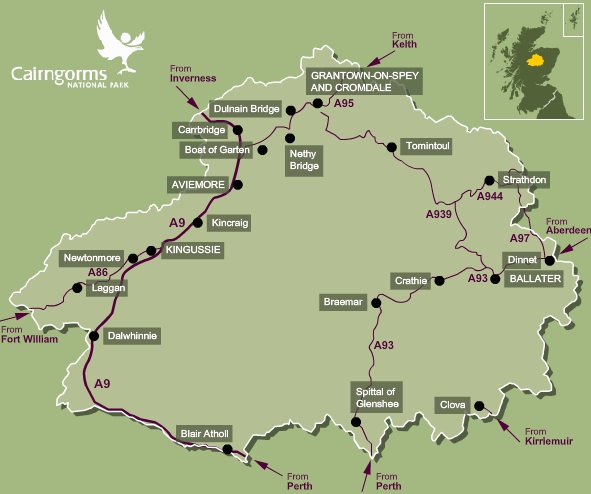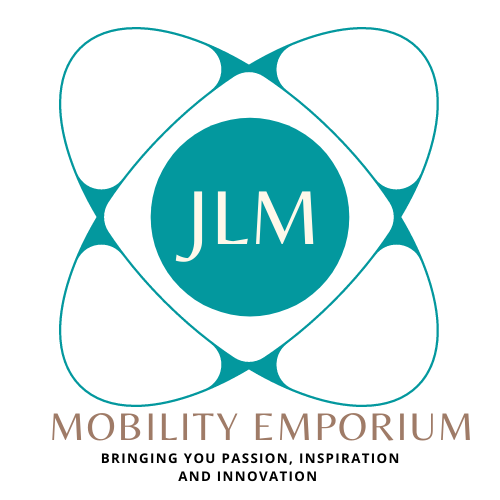PhD Research
Rural MaaS (RMaaS): Exploring the potential for Mobility as a Service (MaaS) in Rural Environments and its role in decarbonisation
 The PhD, based at the University of Aberdeen, Centre for Transport Research, explores the concept of Rural Mobility as a Service (RMaaS) and, due to the lack of evidence from relevant domestic projects, utilises evidence from international case studies to develop a framework and/or best practice for the Cairngorm National Park in Scotland, which is the focus area. The research is undertaken on a part time basis and commenced in 2018 and will complete in early 2024.
The PhD, based at the University of Aberdeen, Centre for Transport Research, explores the concept of Rural Mobility as a Service (RMaaS) and, due to the lack of evidence from relevant domestic projects, utilises evidence from international case studies to develop a framework and/or best practice for the Cairngorm National Park in Scotland, which is the focus area. The research is undertaken on a part time basis and commenced in 2018 and will complete in early 2024.
Research activités undertaken include:
1) A series of workshops (in person) based upon design thinking and co-design. The workshops included practical testing by a wide range of transport users and organisations of existing Rural (RMaaS) and Urban MaaS (UMaaS) solutions/platforms. An evaluation process for MaaS and transport technology solutions was created and tested at this workshop.
2) Over twenty interviews with MaaS experts internationally. This involved those in academia, working in the public sector or practitioners involved in the delivery or RMaaS or UMaaS solutions. A practical framework has been developed from these interviews as a tool to help practitioners along their MaaS journey
3) Over 1000 responses were gathered for a Visitor Rural MaaS survey in the Cairngorm National Park in Scotland and the Lake District National Park, in England, UK. The insights and learnings provide an evidence base for the visitor as a future user of RMaaS and for organisations and businesses in the tourism sector.
The thesis objectives, originally set in 2018, were revised in 2019 and again in 2021. This evolution occurred for several reasons: the growth in available literature; completion of rural mobility trials and increased knowledge and evidence from the international community.
- To provide a review of the relevant literature to define a baseline context of understanding of MaaS and more specifically RMaaS.
- To establish user requirements (for both residents and visitors) and technical opportunities/barriers for RMaaS in the Cairngorm National Park, based upon the design thinking principal and co-creation.
- Evaluate the evidence of whether RMaaS could address mobility gaps and the decarbonisation agenda drawing upon UK and international examples.
- To work with relevant stakeholder groups (including transport providers and authorities) to identify MaaS use cases across a variety of user groups, including residents, visitors, and logistics providers.
- To review and evaluate existing rural technology, software platforms and digital connectivity whilst considering the importance of decarbonisation.
- To explore options for a sustainable model for RMaaS taking into consideration the role of the environment and decarbonisation. This will include tools like mobility hubs which address transport inequality and poverty.
Underpinning these objectives lie a number of interesting questions which are constantly in mind 1) Do rural users want/need MaaS? 2) How can rural MaaS be delivered and which stakeholders are required along the way? 3) How can gaps in transportation needs be filled when rural transport is not typically commercially viable? 4) Are there existing or new models that could work? 5) Can rural MaaS be delivered to all travellers or does there need to be a target audience and thus a siloed approach; for example, can/should rural MaaS only help young people or the elderly? 6) What are the main characteristics/functionalities of Rural MaaS?
For a copy of the survey used for Visitor Rural MaaS, please click here. If you wish the version for running the survey via online software please get in This email address is being protected from spambots. You need JavaScript enabled to view it.
For a list of publications please keep an eye on the ORCID (Open Researcher and Contributor ID) or contact Jenny at This email address is being protected from spambots. You need JavaScript enabled to view it.
For the TRB presentation paper please click here.

